One of the biggest obstacles to ending COVID-19 has been the misinformation that leads people to reject vaccinations. WHO’s donors are supporting work to bring accurate health information to all corners of the world so that people can protect themselves from COVID-19, polio and other diseases.
This week we feature stories about fighting vaccine myths with the help of village elders in Malawi, by radio broadcast into the rainforests of Ecuador, through a travelling guitarist in southern Madagascar, and by a determined motorcyclist in northern Viet Nam.
Other stories on vaccine myth-busting come from Angola, Democratic Republic of Congo and Nigeria.
With support from WHO, a village chief persuades hesitant families to vaccinate their children for polio

Namazoma village Chief Neli Chimenya clangs a homemade bell to convene a meeting on the polio vaccine. ©WHO
Half of the 46 households in the village of Namazoma recently turned away health workers who had come to vaccinate their children for polio. The reason for the refusal? Rumours had been circulating that the liquid vaccine wasn’t really for polio, and that the ink marks placed on the fingers of vaccinated children might have some sinister purpose.
A special team, with representatives of WHO and UNICEF, responded immediately, meeting with Namazoma leaders to explain the benefits of the polio vaccine. Village leaders listened to the facts, delivered in the Chichewa language, and after a question-and-answer session endorsed the polio vaccine. Within a few days, 100 percent of the Namazoma’s households had allowed their children to receive it.
Malawi is working to quickly vaccinate about 3 million children following the discovery of wild poliovirus in the country in February.
In the Amazon, radio broadcasts in local languages dispel COVID-19 myths

“There was so much rejection,” said Indira “Inty” Vargas. ©PAHO
Indira “Inty” Vargas, a member of the Kichwa community of Ecuador, has been volunteering at a community radio station since the height of the pandemic; her task: providing the facts about COVID-19 vaccines to indigenous communities spread over immense territories, days away by boat from any health clinic.
“People didn’t want to get vaccinated. They feared they would die in two years, that women would become infertile, that the vaccines were made to kill our elders,” said Ms Vargas, who broadcasts in Amazonian Kichwa dialect.
La Voz de la Confenia’s programming, in several languages, reaches hundreds of Rain Forest communities in the Pastaza province of northeastern Ecuador.
Watch PAHO’s video: "Bridging gaps: how indigenous groups are promoting the COVID-19 vaccine in the Amazon,” made with the support of Canada.
Madagascar’s Singing Sensitization project sets health information to music

Singer Ebera, right, with his team in Madagascar. ©Doctors for Madagascar
Malagasy singer/songwriter Ebera has broadened his repertoire over the past few years to include songs about COVID-19, handwashing, wearing a mask and social distancing. One of his most popular tunes is “The Measles.”
Take your children to the clinic when they have a fever, the song goes, Don’t wait but act soon. Measles happens when you don’t vaccinate.
The NGO Doctors for Madagascar partnered with Ebera and the country’s health ministry to create the Singing Sensitization project as a means of getting accurate health information to isolated, rural communities in the country’s south.
The team plans to expand the project with new performers and locations, and new songs about other diseases.
Listen to “The Measles” by Ebera.
Photo essay: No road too bumpy: cyclist brings COVID-19 information to northern Viet Nam

Trieu Ta Pao broadcasts accurate COVID-19 vaccination information in local languages. ©WHO Viet Nam/Minh Pham
The mountain roads in Nam Khoa are narrow and full of potholes. Every ride is a struggle, especially on a small motorbike with a large speaker strapped to the back. But these obstacles do not deter Trieu Ta Pao, a COVID-19 communication officer who works along Viet Nam’s border with China.
Mr. Pao’s motorbike mission is an example of WHO’s people-centered approach to COVID-19 communications. Through tailored activities, even hard-to-reach populations can get relevant, understandable public health advice from voices they trust.
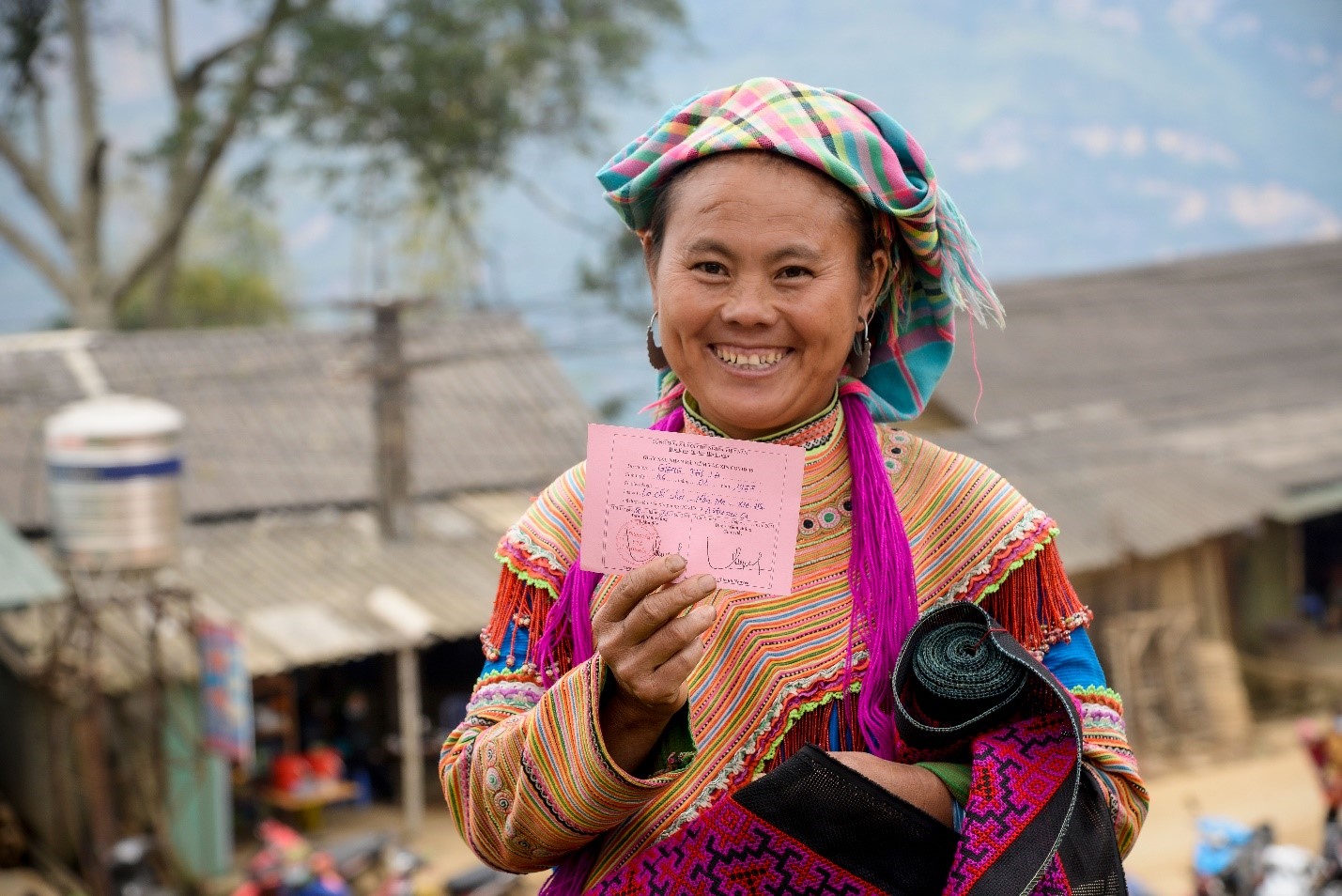
Vaccines and health information reached Giang Thi La, a farmer in Viet Nam’s H’mong community. She is now fully vaccinated against COVID-19. ©WHO/Loan Tran
In Nigeria, lessons from beating polio help health workers tackle COVID-19 vaccine hesitancy
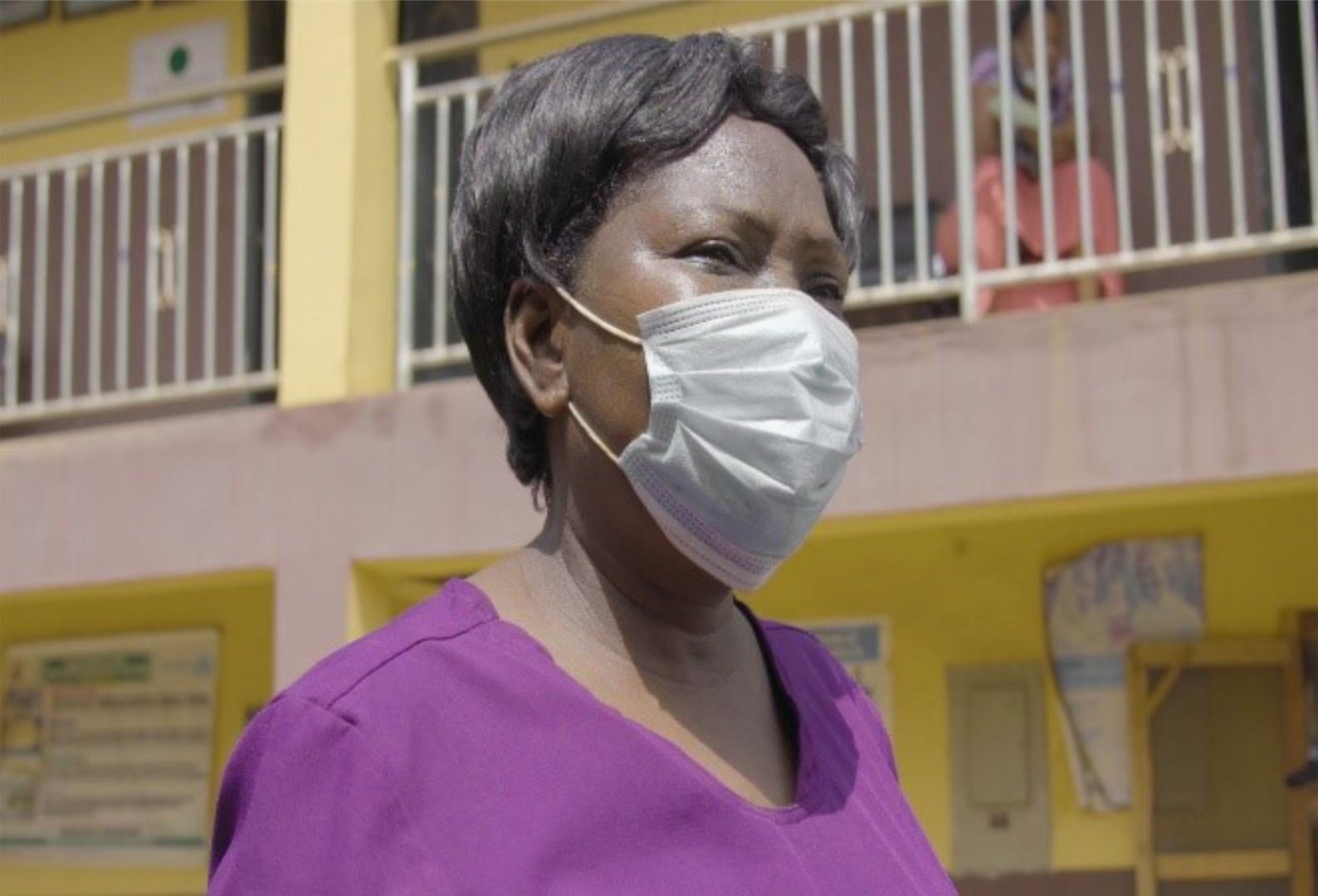
Nigeria’s polio teams turned to fighting COVID-19 after their success in eliminating wild poliovirus. An important part of their COVID-19 work has been fighting vaccine hesitancy in communities. Above: Nursing officer Fatunmobi Christiana. ©WHO
Nigeria has repurposed its well-established network of polio workers to fight COVID-19.
Fatunmobi Christiana, officer-in-charge of Idi-Ogugun Primary Health Care Centre in Ibadan Oyo State, said she relies on the trust she built in the community during polio campaigns to encourage vaccine-hesitant people to accept COVID-19 shots.
“People trust that I will not advise them to receive a shot that will harm them,” she said.
Angola ramps up the fight against COVID-19 misinformation
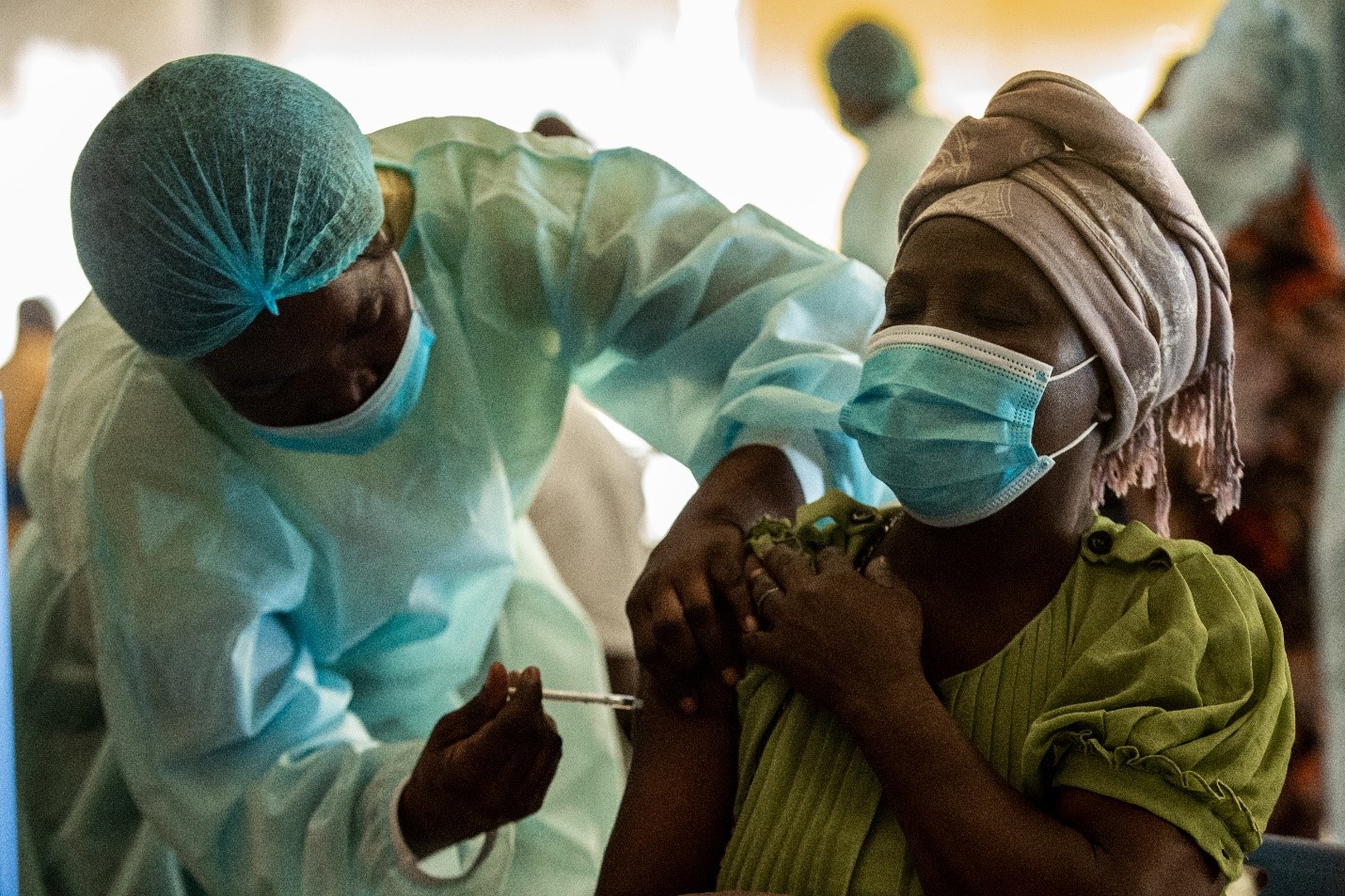
A vaccinator at work in Angola. ©WHO
Joana Domingos used to believe that the COVID-19 vaccine was part of a global plan to annihilate the most vulnerable – disinformation she had gleaned from mobile phone texts.
“I was very confused and scared about the possibility that my children and I would die from COVID-19,” recalled the mother of two, describing how she barricaded herself and her family inside their home in Luanda, Angola. “I decided to stop working, ban my children from going back to school, and eliminate any chance of being exposed to the COVID-19 virus.”
The dangers of disinformation for public health and the pandemic response in Angola led the WHO and the Ministry of Health to create the COVID-19 Alliance Project, an initiative to counter falsehoods with facts.
New Alliance fights an infodemic of health fiction in Africa with reliable information
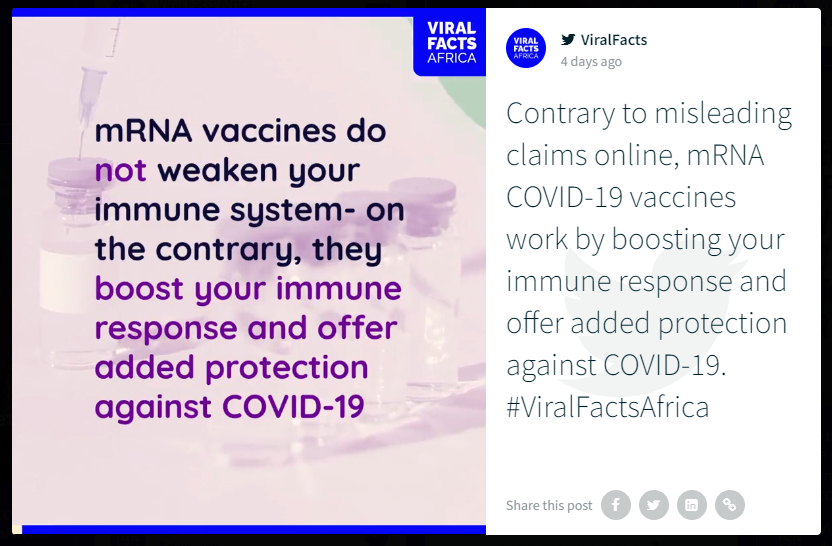
AIRA crafts social media products to fight health misinformation. Above, one of their recent posts, ready for sharing.
Viral Facts Africa is knocking down the myths and rumors about COVID-19 vaccines that have hampered efforts to end the pandemic. The organization’s stream of eye-catching social media messages, in French and English, explain things like:
FACT: all vaccines, including COVID-19 vaccines, go through rigorous trials and independent assessment to make sure they are safe and effective.
FACT: there is no evidence that COVID-19 vaccines affect fertility.
FACT: The risk of blood clots from COVID-19 infection far outweigh the same risk from any COVID-19 vaccine.
Viral Facts Africa is the work of the Africa Infomedic Response Alliance (AIRA), which brings together WHO, the Africa Centers for Disease Control and Prevention, UNICEF and others to track and respond to health misinformation.
Rallying to combat COVID-19 rumours in the Democratic Republic of the Congo
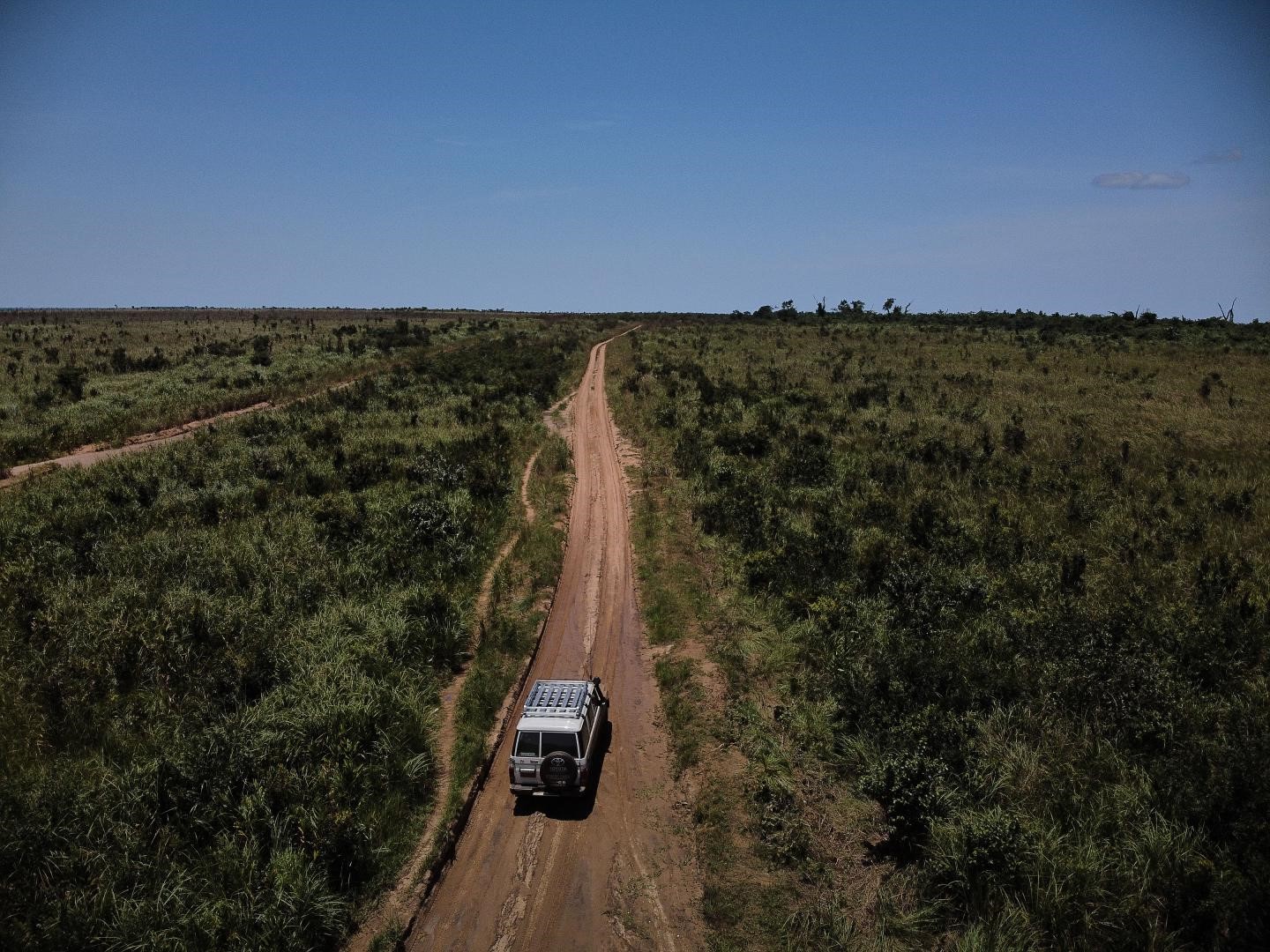
A vaccination team hits the road in Democratic Republic of the Congo. ©WHO
It can be hard to tease apart fact from falsehood amid the distorted, oft-repeated COVID-19 stories. In the Democratic Republic of the Congo, a network of myth busters is on constant watch, tracking and addressing misinformation.
“At the start of the pandemic, we were inundated with rumours and disinformation on COVID-19 and vaccines,” says Imam Famba Ali Huseini, leader of the Usoke Central Mosque in a busy neighbourhood. “In Kinshasa’s Muslim community, people feared the vaccine. Some thought Africans were being used as guinea pigs, and that the vaccines were made with pork gelatin.”
WHO has worked with the country’s ministry of health to establish the rumour alert and refutation system. With support from United States Agency for International Development, health workers, journalists, and community and religious leaders have been trained to detect and manage disinformation. The goal is to equip the public with accurate COVID-19 information so that vaccines can protect more lives.
* * *
Partners and donors recognized in this feature include the Africa CDC, Africa Infomedic Response Alliance (AIRA), Canada, Doctors for Madagascar, UNICEF and USAID.
WHO thanks all governments, organizations and individuals contributing to the COVID-19 response around the world since the beginning of the outbreak, and in particular those who have provided fully flexible contributions, to ensure a comprehensive fight against the disease.
* * *
Member States and other governments since 2021:
Australia, Belgium, Canada, Comoros, Denmark, Egypt, France, Germany, Ireland, Isle of Man, Israel, Italy, Japan, Kingdom of Saudi Arabia, Kuwait, Lesotho, Malta, Mauritania, Monaco, Netherlands, New Zealand, Norway, Philippines, Portugal, Republic of Korea, Slovak Republic, Spain, Sweden, Switzerland, Thailand, United Kingdom, United States of America.
Other partners since 2021:
African Development Bank Group, African Reinsurance Corporation, Alma Jean Henry Charitable Trust, Ancash, Asian Development Bank, Bill and Melinda Gates Foundation (BMGF), Central American Bank for Economic Integration (BCIE), China Medical Board, COVID-19 Solidarity Response Fund, European Commission (ECHO, NEAR, DG-INTPA), FIND-the global alliance for diagnostics, Fundacion MAPFRE, FYT, Gavi-The Vaccine Alliance, International Development Association (IDA), International Organization for Migration (IOM), Islamic Development Bank (IDB), King Salman Humanitarian Aid and Relief Center (KSRelief), Kuwait Fund for Development, National Philanthropic Trust (NPT), Rockefeller Foundation, Secretariat of the Pacific Community, Sony, Susan Thompson Buffett Foundation, Task Force for Global Health (TFGH), The UN Resident Coordinator Office (UNRCO), Unitaid, United Nations Central Emergency Response Fund (CERF), United Nations Children's Fund (UNICEF), United Nations Development Programme (UNDP) and the Multi-Partner Trust Fund (MPTF), United Nations High Commissioner for Refugees (UNHCR), United Nations Multidimensional Integrated Stabilization Mission in Mali, United Nations Office for South-South Cooperation (UNOSSC), United Nations Office for the Coordination of Humanitarian Affairs (UNOCHA), United Nations Population Fund (UNFPA), United Nations Postal Administration (UNPA), United Nations World Food Programme (WFP), Veolia Environment Foundation, Vital Strategies, WHO Foundation, World Bank.
